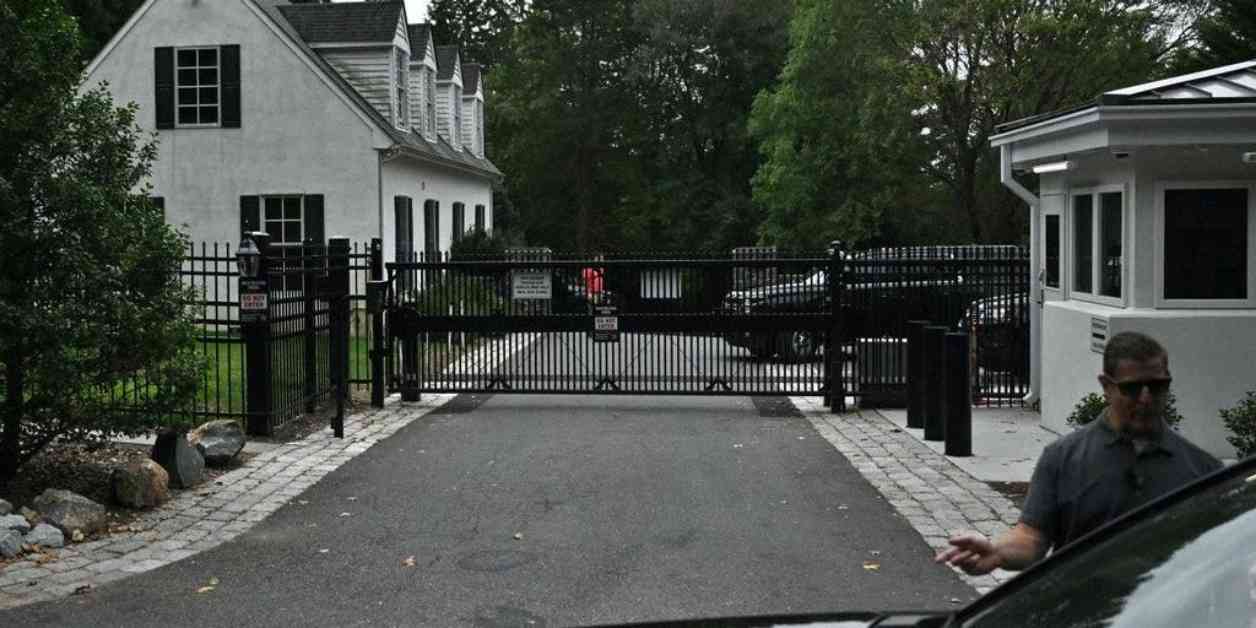President Biden is currently hosting a series of private meetings with the leaders of Australia, Japan, and India at his Delaware estate in preparation for the upcoming Quadrilateral Security Dialogue (Quad) summit. The White House has confirmed the presence of Australian Prime Minister Anthony Albanese and Japanese Prime Minister Fumio Kishida, with Indian Prime Minister Narendra Modi also spotted arriving at the residence over the weekend. The meetings are being held in Wilmington, the president’s hometown, in what has been described as an excessively private affair that has raised concerns among media organizations.
The White House Correspondents’ Association has expressed outrage over the lack of press access to the meetings, with WHCA president and Politico correspondent Eugene Daniels labeling the situation as “unacceptable.” Security concerns have been cited as the reason for the limited access, with journalists only allowed to see the leaders arriving at the location. Despite this, White House press secretary Karine Jean-Pierre has emphasized that the press will have the opportunity to witness Biden and the world leaders departing the meetings.
The foreign leaders are set to attend a low-key dinner at Archmere Academy, the president’s former school, on Saturday night. Administration officials have framed the unique format and venue of the event as a gesture of hospitality, highlighting the personal relationships that Biden has with these world leaders and the importance of cultivating strong ties in foreign policy. This marks the first time that President Biden will host foreign leaders in Wilmington since taking office, underscoring the significance of the relationships he has with these key allies.
Despite the protests from media figures and concerns over transparency, the State Department has defended the private nature of the meetings, emphasizing the strategic importance of the leaders involved. The summit serves as a crucial opportunity for President Biden to engage with his counterparts from Australia, Japan, and India on key issues of mutual interest, including security cooperation and regional stability. The Quadrilateral Security Dialogue has emerged as a vital forum for addressing shared challenges and advancing common objectives in the Indo-Pacific region.
Concerns Over Press Access
The lack of press access to President Biden’s meetings with foreign leaders has sparked criticism from media organizations, with the White House Correspondents’ Association raising concerns about transparency and accountability. While the administration has cited security reasons for restricting media coverage, journalists have pushed back against the limited access, arguing that the public has a right to know about the president’s interactions with world leaders. The WHCA has called for greater transparency and press access to ensure that the American people are informed about the discussions taking place at the Quad summit.
Importance of Personal Diplomacy
The Biden administration has stressed the importance of personal relationships in diplomacy, with White House national security spokesman John Kirby emphasizing the significance of the president’s close ties with the leaders of Australia, Japan, and India. Biden’s decision to host the Quad summit in his hometown of Wilmington reflects his commitment to fostering strong relationships with key allies and partners. Personal diplomacy has long been a hallmark of Biden’s approach to foreign policy, with the president prioritizing direct engagement with world leaders to advance U.S. interests and promote international cooperation.
Strategic Significance of the Quad Summit
The Quad summit comes at a critical juncture for the United States and its partners in the Indo-Pacific region, as the Biden administration seeks to strengthen alliances and enhance security cooperation to address emerging challenges. The Quadrilateral Security Dialogue has emerged as a key forum for coordinating policy responses to shared threats, including China’s growing influence and assertive behavior in the region. By convening the leaders of Australia, Japan, and India, President Biden aims to reinforce the Quad’s role as a pivotal mechanism for promoting regional stability and upholding a rules-based order in the Indo-Pacific.
In conclusion, President Biden’s private meetings with the leaders of Australia, Japan, and India ahead of the Quad summit underscore the strategic importance of the Indo-Pacific region and the administration’s commitment to strengthening alliances and partnerships. While concerns have been raised about the lack of press access to the meetings, the White House has defended the privacy of the discussions as a necessary measure to ensure security and facilitate candid exchanges among the leaders. As the Quad summit unfolds, all eyes will be on the outcomes of the discussions and the implications for U.S. foreign policy in the region.




